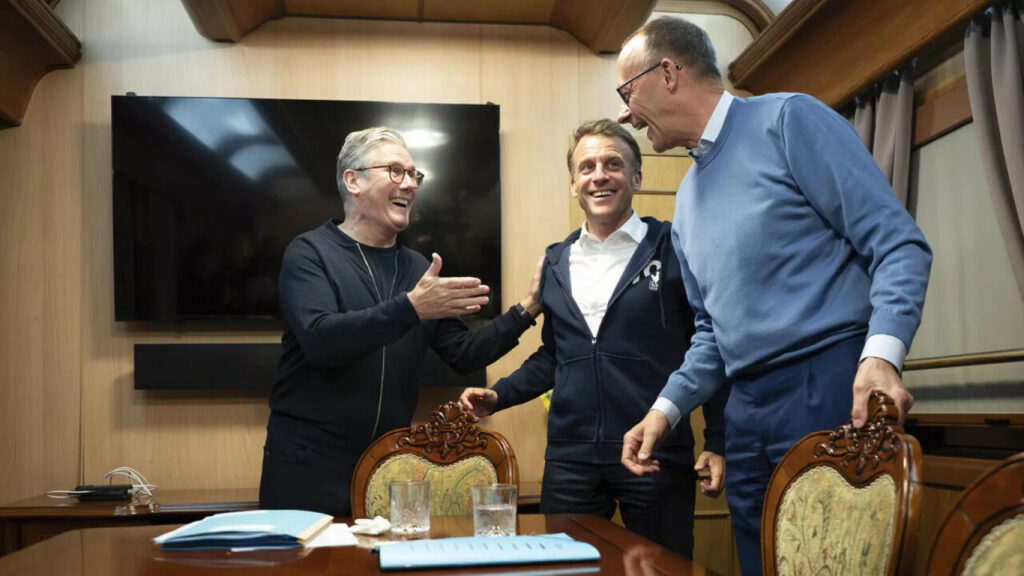TEHRAN – Iranian Foreign Minister Abbas Aragut issued a warning to European powers on Sunday, saying that misuse of the snapback mechanism of the Joint Comprehensive Action Plan (JCPOA) will lead to “end of Europe’s role in the agreement” and “irreversible tensions.”
In the X-post, first posted in French as part of Le Point’s broader manipulation, Araghchi highlighted Tehran’s preparation to “turn the page” in a tense relationship, but emphasized that European partners must go back and forth.
“We have officially warned all JCPOA signatories that abuse of snapback mechanisms will result in consequences. Not only will it end the role of Europe in the transaction, it will potentially escalate to the point that it does not potentially escalate tensions.”
He also said Iran has launched preliminary talks with the Deputy European Minister following talks with Russia and China, calling it a “fragile yet promising” step. However, he warned that “time is running fast,” urging Europe to take decisive action to avoid further deterioration.
This warning goes against the backdrop of friction with France. French Foreign Minister Jean Noel Barott recently accused Iran of “at the pinnacle of developing nuclear weapons” at the UN Security Council’s non-proliferation conference, which was closed.
Barott “excluded military action” and supported US-led diplomatic efforts, but he threatened to “not hesitate to spare” sanctions if Europe triggered a snapback mechanism and expiring the JCPOA without guaranteeing Europe’s safety.
The mechanism built into UN Resolution 2231 allows JCPOA signatories to automatically restore all pre-2015 UN sanctions on Iran if they violate their nuclear commitments.
From Tehran’s perspective, calling a snapback mechanism is not only unfair and illegal, but it is a reckless political gambit that directly opposes Iran and entrenches E3, extinguishing the remaining chances for diplomatic reconciliation.
Iran claims that despite its 2018 withdrawal from the US JCPOA, Europe is ready to trigger a snapback.
Hostile behaviour in Europe: MEK, oppression, and co-infidelity of genocide
Recent European policies on Iran have elicited sharp criticism of their obvious double standards, ranging from implicit support for anti-Iranian terrorist groups to the suppression of Palestinian pro-active activities.
These actions are framed under the pretext of supporting anti-terrorism or international law, suggesting a systematic agenda for Tehran.
Public support for the French Mojahedin-e Khalq (MEK) rally bares a brave display of state-sponsored hypocrisy. By giving a platform to groups with a violent legacy of brutal assassination and conspiracy with Saddam Hussein during the Iran-Iraq War, France not only justifies the agenda of extremists, but also undermines the alleged commitment to human rights.
Despite its violent history, MEK is permitted to operate freely in France, hosting high-profile events in Iran that advocates for a “change of government.” Tehran has repeatedly accused Paris of harboring terrorists while simultaneously prosecuting Iranian activists under Draconia’s anti-terrorist law.
This double standard is further illustrated by France’s crackdown on Iranian opposition defending Palestinian rights.
French Iranian journalist Shahin Hazami became the third Iranian citizen to be detained in 18 months after documenting Israeli atrocities in Gaza. His arrest in April included violent attacks by masked security forces who plundered his home and seized him without explanation.
Hazamie faced judicial harassment as a Palestinian mother holding a bloody child at a Paris rally pulled 50 million views and exposed her French accomplices to silence Gaza solidarity.
European accomplices in the Israeli regime’s war crimes range from continuing arms sales to Tel Aviv. Despite the legal challenges that Germany suspends in 2024 when approving the export of “war weapons” to Israel, the pre-approval of a total of 326.5 million euros of military equipment, including tanks and ammunition components, has encouraged Israel’s destruction of Gaza.
According to Sipri, German arms exports to Israel, including frigates and torpedoes, accounted for 30% of Israel’s major arms imports between 2019 and 2023.

